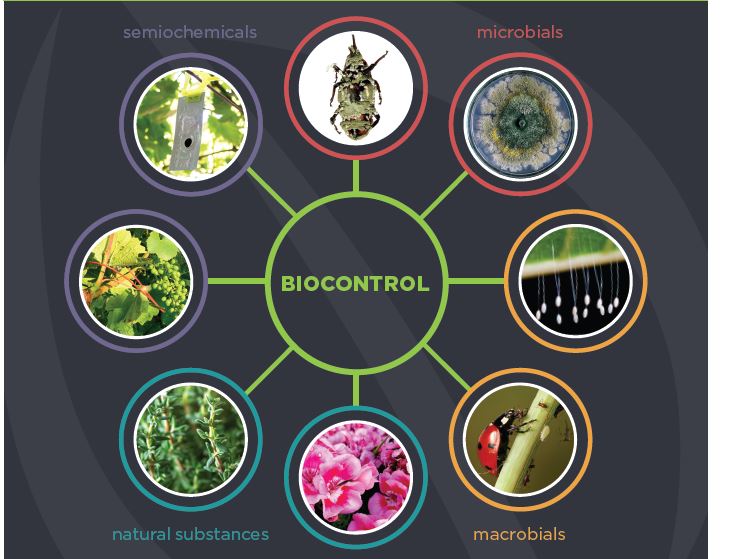Biological Control in Agriculture: A Sustainable Approach to Pest Management
Introduction
Biological control, or biocontrol, is an environmentally friendly method of managing agricultural pests, diseases, and weeds by utilizing natural predators, parasites, or pathogens What is Biological Control ?. This approach contrasts with chemical pesticides, offering a sustainable alternative that aligns with organic farming principles.

Types of Biological Control
-
Classical Biological Control: This involves introducing natural enemies from the pest’s native habitat to control invasive species What is Biological Control ?. For instance, Trichogramma wasps, which parasitize insect eggs, have been used globally to manage pests like the corn borer .Wikipedia
-
Augmentative Biological Control: This method enhances the population of natural enemies already present in the area. Farmers may release additional beneficial organisms, such as ladybugs or parasitic wasps, to boost pest control efforts.
-
Conservation Biological Control: This strategy focuses on preserving and enhancing the habitat of natural enemies to support their effectiveness. Implementing practices like planting cover crops or reducing pesticide use can help maintain these beneficial organisms .
Examples of Biological Control Agents
-
Ladybugs (Coccinellidae): These beetles are voracious predators of aphids, a common pest in many crops.Wikipedia
-
Trichogramma Wasps: These minute wasps parasitize the eggs of various insect pests, preventing the larvae from hatching and causing damage .
-
Bacillus thuringiensis (Bt): This soil bacterium produces proteins toxic to certain insect larvae but is harmless to humans and animals What is Biological Control ?. Bt is widely used in organic farming to control pests like caterpillars .Wikipedia

Benefits of Biological Control
-
Environmental Safety: Biocontrol agents are specific to their target pests, reducing the risk of harming non-target organisms.
-
Sustainability: Unlike chemical pesticides, which can lead to resistance and environmental degradation, biocontrol offers a long-term solution.
-
Cost-Effectiveness: Over time, biocontrol can be more economical, as it reduces the need for chemical inputs and their associated costs.

Challenges and Considerations
-
Ecological Balance: Introducing new species can disrupt local ecosystems if not carefully managed.
-
Effectiveness: The success of biocontrol depends on various factors, including environmental conditions and the behavior of the pest and its natural enemies. https://discovershpere.in/
-
Regulatory Approval: In many regions, the release of biocontrol agents requires thorough testing and approval to ensure safety and efficacy.

No Responses